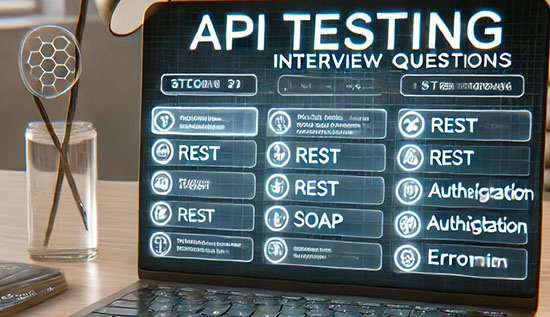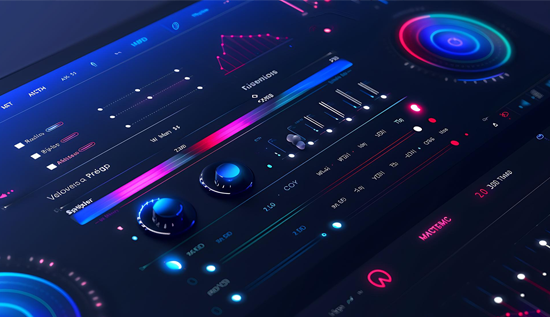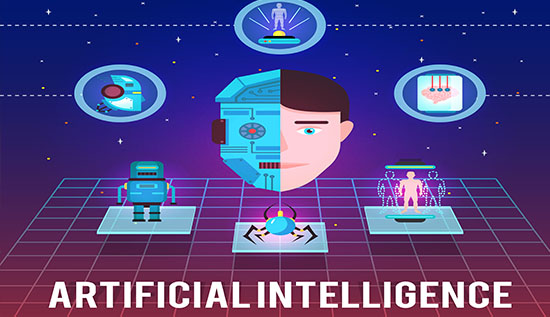What are api testing interview questions

Learn about the most common API testing interview questions, including Postman API testing and REST Assured API testing tips.
Particularly with the advent of microservices and cloud-based applications, API testing has become a vital ability in the software development lifecycle. API testing interview questions are thus a mainstay of technical interviews for positions including QA engineers, automation testers, and software developers. Knowing these questions will help you stand out in your next interview regardless of your level of experience—beginner or expert.
This article dives deep into the most common API testing interview questions, including Postman API testing interview questions, REST Assured API testing interview question, and more. By the conclusion, you'll be rather clear about what to expect and how best to get ready.

What are interview questions for api testing?
API testing interview questions are meant to assess your grasp of API ideas, tools, and best practices. From fundamental API concepts to sophisticated automation methods, these queries often span a broad spectrum of subjects.
For example, you might be asked about the difference between SOAP and REST APIs, how to handle authentication in API testing, or how to use tools like Postman and REST Assured. These questions aim to assess your technical knowledge, problem-solving skills, and ability to apply concepts in real-world scenarios.
Common API Testing Interview Questions and Answers
Here are some of the most frequently asked API testing interview questions and answers:
- What is API testing, and why is it important?
API testing is confirming APIs' security, dependability, performance, and functionality. It guarantees APIs operate as expected and satisfy the necessary requirements. - What tools are commonly used for API testing?
Tools like Postman, REST Assured, SoapUI, and JMeter are widely used for API testing. Each tool has its strengths, such as Postman for manual testing and REST Assured for automation. - How do you handle authentication in API testing?
JWT tokens, OAuth, and API keys are among the ways one may manage authentication. The API should only be accessible to authorised people, so it is crucial. - What is the difference between SOAP and REST APIs?
SOAP is a protocol that uses XML for messaging, while REST is an architectural style that uses JSON or XML. REST is generally faster and more flexible, making it more popular for modern applications.
Postman API Testing Interview Questions
Postman is one of the most popular tools for API testing, and interviewers often ask specific Postman API testing interview questions. Here are a few examples:
- How do you create a collection in Postman?
APIs are arranged in Postman using collections. Click the "New" button and choose "Collection" to start a collection. - What are environments in Postman, and how do you use them?
Environments in Postman allow you to manage variables for different setups, such as development, testing, and production. How do you automate API testing in Postman?
With its built-in collecting runner and command-line tool Newman, Postman offers automation.
REST Assured API Testing Interview Questions
REST Assured is a powerful Java library for automating REST API testing. Here are some common REST Assured API testing interview questions:
- What is REST Assured, and how does it work?
REST Assured is a Java DSL (Domain-Specific Language) meant to simplify REST API testing. It offers means for making HTTP inquiries and verifying answers. - How do you validate JSON responses in REST Assured?
You can use the body() method in REST Assured to validate JSON responses. For example, response.body("key", equalTo("value")). - What are the advantages of using REST Assured for API testing?
REST Assured provides a straightforward syntax, interface with TestNG and JUnit, and support of several authentication techniques.
API Automation Testing Interview Questions
Automation is a key aspect of modern API testing. Here are some API automation testing interview questions you might encounter:
- What are the benefits of automating API testing?
Automation guarantees faster response on API changes, lowers hand work, and boosts test coverage. - How do you handle dynamic data in API automation?
Mocking approaches, data-driven testing, and variables allow one to handle dynamic data. - What frameworks do you use for API automation?
Popular frameworks include REST Assured, Karate, and PyTest.
API Automation Tester Salary for 5 Years Experience
API automation tester salary for 5 years experience, Depending on the business, abilities, and industry need, pay normally fall between $1,500 and $2,000 per month. On the higher end of this spectrum, senior-level testers with great knowledge in automation frameworks can make.
Check job sites and industry data to guarantee you're getting a competitive offer for the most current pay trends and negotiating advice.
API Testing Interview Questions for Experienced Professionals
If you're an experienced professional, you might face more advanced API testing interview questions for experienced candidates. These questions often focus on architecture, performance, and security.
- How do you test the performance of an API?
Performance testing gauges response times, throughput, and resource use under varying loads. Common utilized tools are JMeter and Gatling. - What are some common security issues in APIs, and how do you test for them?
Typical problems are data disclosure, broken authentication, and SQL injection. OWASP ZAP and other security testing instruments can help find flaws. - How do you design an API testing strategy?
Defining test objectives, choosing tools, building test cases, and giving automation top priority constitute a good approach.
Conclusion
Preparing for API testing interview questions can be challenging, but with the right approach, you can ace your next interview. Focus on understanding the core concepts, practicing with tools like Postman and REST Assured, and staying updated on industry trends.
Not only will you wow your interviewers but also lay a good basis for your future in API testing by learning these questions.
Frequently Asked Questions
1. Which most often used API testing interview questions exist?
Typical queries cover the foundations of API testing, technologies like Postman and REST Assured, and automated approaches.
2. How might I get ready for queries on the Postman API testing?
Learn Postman's capabilities like automation, environments, and collections.
3. Why is REST Assured popular and what exactly it guarantees?
Recognised for simplicity and adaptability, REST Assured is a Java tool for automated REST API testing.
4. In what main respects do SOAP and REST APIs differ?
Whereas REST employs JSON or XML and is architecture-based, SOAP is protocol-based using XML.
5. How do I approach API testing's authentication?
Control authentication with OAuth, JWT tokens, or API keys.
6. Under what instruments API automation testing is conducted using?
API automation makes regular use of tools including REST Assured, Karate, and PyTest.
7. Given five years of experience, what is the typical pay for an automation tester?
Although geography affects the average automation tester income for 5 years of experience, it usually falls between 70,000 and 100,000 yearly.
More Articles
 26 Dec 2025
26 Dec 2025
Motion UI Trends 2026: Interactive Design & Examples
Explore the latest Motion UI trends for 2026, including UI animation techniques, interactive web design trends, and real-world motion UI examples that redefine modern digital experiences across web and mobile.
 26 Dec 2025
26 Dec 2025
Conversational UX: Design Tips & Examples for 2026
Conversational UX design strategies, real examples, chatbot and voice UX trends shaping smarter digital experiences in 2026.
 25 Dec 2025
25 Dec 2025
Artificial Intelligence Trends 2026 Shaping the Future
Discover key Artificial Intelligence trends 2026 and how they will transform industries, jobs, healthcare, and enterprise systems worldwide.
 25 Dec 2025
25 Dec 2025
E-Waste Management Technologies & Recycling Methods
E-waste management technologies play a vital role in modern recycling systems, sustainable disposal, and safe handling of electronic waste worldwide.